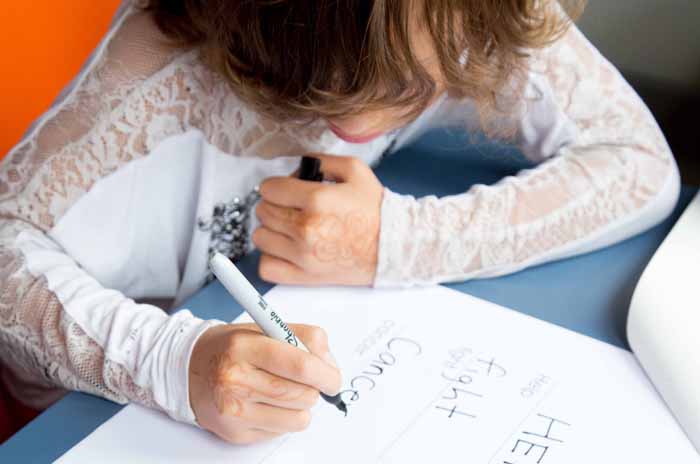Supporting Your Student At Diagnosis
Supporting Your Student At Diagnosis
Parents often feel overwhelmed after receiving their child's diagnosis. It can take them some time to consider the impact of cancer on their child's education.
Key points to remember about supporting your student at diagnosis
- choose a key contact person to liaise with your student's caregivers and whānau
- sharing information can help establish a culture of care and support and reduce uncertainty
- a student's cancer diagnosis can stir up a range of emotions for school staff members and other students

Why is it a good idea to have a key contact person at school?
Parents often feel overwhelmed after receiving their child's diagnosis. It can take them some time to consider the impact of cancer on their child's education.
It is a good idea to have one key contact person from the school. This could be the principal, your student's main teacher, their syndicate leader or their favourite teacher. Sometimes it may be a family support coordinator (provided by Child Cancer Foundation). Early on, this key contact person can pass on the best wishes of the school and let your student's family and whānau know that the school is there to provide support.
It is important to stay in touch and help your student and their whānau to feel connected with your school or early learning centre. But, remember to respect the family's wishes about how much contact they want. Check what level of information sharing they're comfortable with.
How often should I communicate with my student's family?
You may find that parents don't want to give out much information at first. They may still be finding out about their child's treatment. But once treatment starts, many families welcome the opportunity to share information and have contact with teachers and their child's classmates.
School often represents hope for the future for parents and your student who has cancer. Sharing information can help establish a culture of care and support, and reduce uncertainty.
It is important to discuss with the family what information they want to share with staff and other families, and how they wish to stay in touch.
How can I respect the family's privacy after my student's cancer diagnosis?
Some families may prefer not to share any information about a diagnosis. While this can be challenging for school staff, respecting family and whānau privacy is essential.
If the family is willing to share information, they can work with the school's primary contact person to decide what information to share, and who to share it with. If your student has siblings, and the family is happy to share information, it is a good idea to tell the siblings' teachers, coaches and counsellors about the diagnosis. This helps the teachers and other staff members get accurate information rather than relying on guessing and rumours.
How will staff members be affected by my student's cancer diagnosis?
Remember more than 80 in 100 children survive cancer.
Some staff members may have previous experience with cancer, either as a patient themselves or as a friend or relative of a cancer patient. A student's cancer diagnosis can stir up a range of emotions for these and other staff members.
It is a good idea to remind them that at least 80 in 100 children with cancer survive and that it is important to focus on their continuing education.
Providing regular updates to staff (that the family is happy to share) provides an opportunity for staff to think about the best ways to support the student and their family and whānau. It can also help keep the family connected to the school or preschool community.
How should I refer to my student's illness?
How should I answer questions about my student's cancer?
Children in your classroom will naturally have questions about their classmate's cancer.
See some suggested answers to common questions kids ask about cancer
What can our class do to help my student with cancer?
Children with cancer love hearing from their friends and classmates while they are away from school. Sending cards, pictures or drawings that they can put up on their hospital room wall is a great idea. They can also send text messages or use other messaging platforms like FaceTime, WhatsApp, Snapchat or Facebook to send messages of support.
Keeping in touch lets your student with cancer know their friends are thinking about them. It also helps classmates to feel that they are 'doing something'.
Your class may want to start fundraising for their classmate with cancer straightaway. It is best to talk to the family and whānau first before setting up any kind of fundraising activities.
This page last reviewed 12 May 2022.
Do you have any feedback for KidsHealth?
If you have any feedback about the KidsHealth website, or have a suggestion for new content, please get in touch with us.
Email us now